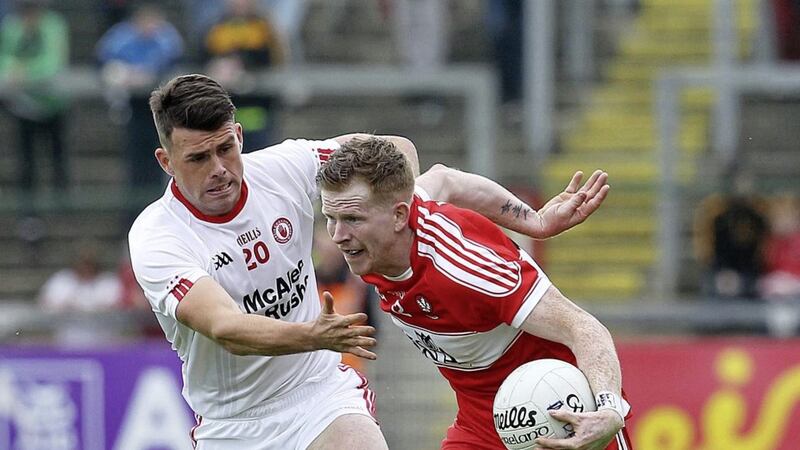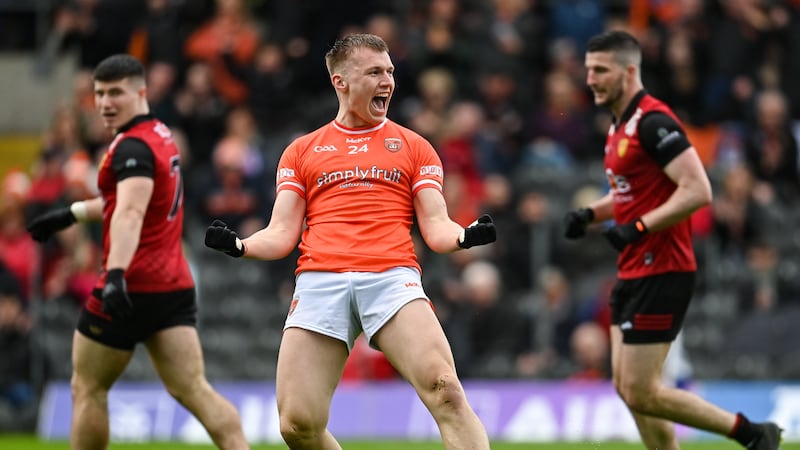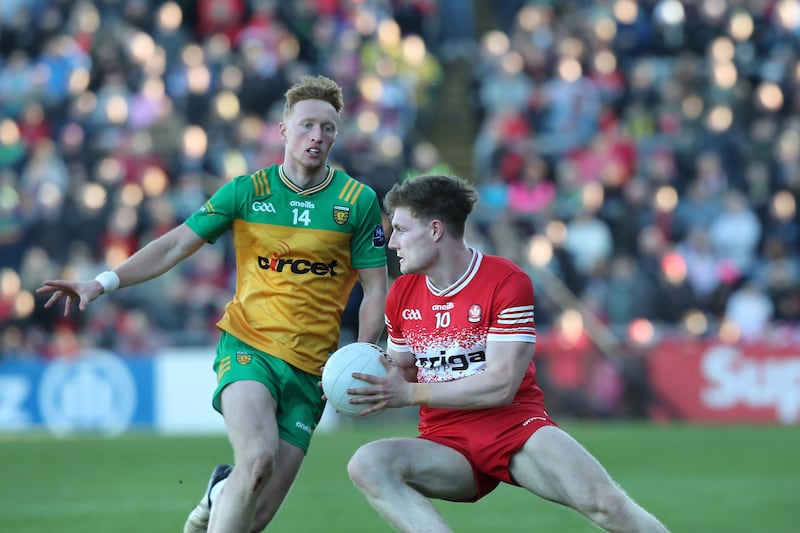THE Beatles or The Stones? Blur or Oasis? Taylor Swift or Rihanna?
These could be construed as more of those ‘age gauge’ questions, but however old (or young) you are the correct answer to all of them is, of course, ‘both’.
This need to be one or the other – and to diss the other one – is part of the human condition, but it’s never made much sense to me.
The idea that you must dislike, perhaps even completely shun, a certain sport because you happen to love a particular other code is equally strange to my mind.
I distinctly remember my mate who’s a Charlton Athletic fan texting me gleefully after his side beat Liverpool early in the 2003-4 season. I even remember that it was a hat-trick by Kevin Lisbie. Exactly.
But I didn’t care – because it was the same Sunday that Tyrone won their first All-Ireland SFC.
As it turned out, Liverpool still finished in the top four – and the rest, in May 2005, was remarkable history.
Working mainly as a GAA reporter, one still hears jibes about ‘soccer men’ and damning descriptions of that game’s perceived failings.
The disdain flows both ways, of course, with plenty in the association football fraternity denigrating what they term ‘Gah’ or ‘bog-ball’.
As with some of the most vocal homophobes, who turn out to be secretly gay themselves, so certain sneerers about soccer have been discovered to have a hidden past in the association football game.
And much of the hatred of the GAA is purely sectarian.
Yet as we begin the month of May, I remain delighted that the respective associations organise their schedules as they do.
There’s a pleasing pattern that the soccer season winds up around the same time that the Championship really gets going.
Similarly, it feels right that the Championships come to their conclusion when the soccer is only getting started again.
Those campaigning for the GAA to squash the inter-county season into an even smaller time-frame should consider the consequences.
If the GAA Championships did get under way in April, never mind March, then they would be battling for attention against the closing stages of the English Premier League. The soccer finales aren’t always as gripping as this current one but there are still the latter stages of the Champions League to consider.
Those self-proclaimed ‘true Gaels’ who ignore soccer are in a very small minority, and indeed are a dying breed, if social media is any reliable guide.
There’ll always be some overlap between the soccer season and the GAA championships, sure, but having the business end of either overshadowed by major matches in the other would be daft.
I’m already uncomfortable with shifting All-Ireland Finals too far forward in the calendar.
The tightening of the schedule so that it left only a week between the end of the Super Eights and the All-Ireland SFC semi-finals last year (six days in Dublin’s case) was plain wrong.
A fortnight’s build-up – and break – between major matches needs to be factored in, for the good of players, supporters, and sponsors.
The solutions to the GAA’s calendar problems are simple, at least in theory. There should be less training and players should be regarded as club players first and foremost, not the property of their county.
Changing the mindsets in both regards, putting those ideas into practice, will be far more difficult, obviously.
The parallels should be with the club-country relationship in soccer, where the latter ‘borrow’ players and look after them well, doing their best to return them in good condition.
As regards rugby, the club analogy is meaningless now in Ireland: the relationship to consider is between province and country, which works out reasonably well.
Clearly it’s an honour to play at a higher level in any code, but you should never forget your roots, or who and what helped you become a top player.
Equally, club league matches do matter – but not as much as major Championship games.
A balance can be found. The club and county seasons don’t need to be separated completely – leave that divide to the GAA and soccer.
//////////////////////
Before you criticise anyone, walk a mile in their moccasins – that way, you’ll be a mile away and you’ll also have their moccasins.
It’s a decent joke, but the first part of it is more useful.
Watching the Ulster Minor Football Championship match between Armagh and Derry on Saturday evening, I sent out a couple of sarcastic tweets about the time taken by both sides to score.
Shortly after the game ended, and I stepped out onto the pitch, I knew that I wouldn’t have gone very far, or kicked the ball with any accuracy, whether I was wearing moccasins or expensive football boots.
The wind was viciously strong and bitterly cold.
Before leaving the press-box I’d been minded to moan in my report about the cautious approach adopted by both sides.
Part of me still feels that they could – and should – have been more adventurous.
However, as a long-time defender of the defensive arts in sport, credit had to go to both teams for their tackling, organisation, and work-rate – and the tactical acumen instilled into them.
Had they kicked more often, there might have been more battles for possession, but there certainly would have been more unsightly scrambles, and probably even more bodies back deep in defence in order to reduce the risk of conceding goals.
I’ve never bought the argument that GAA players, even kids, should not be criticised strongly because they’re amateurs – but it’s always worth finding out what way the wind is blowing.







